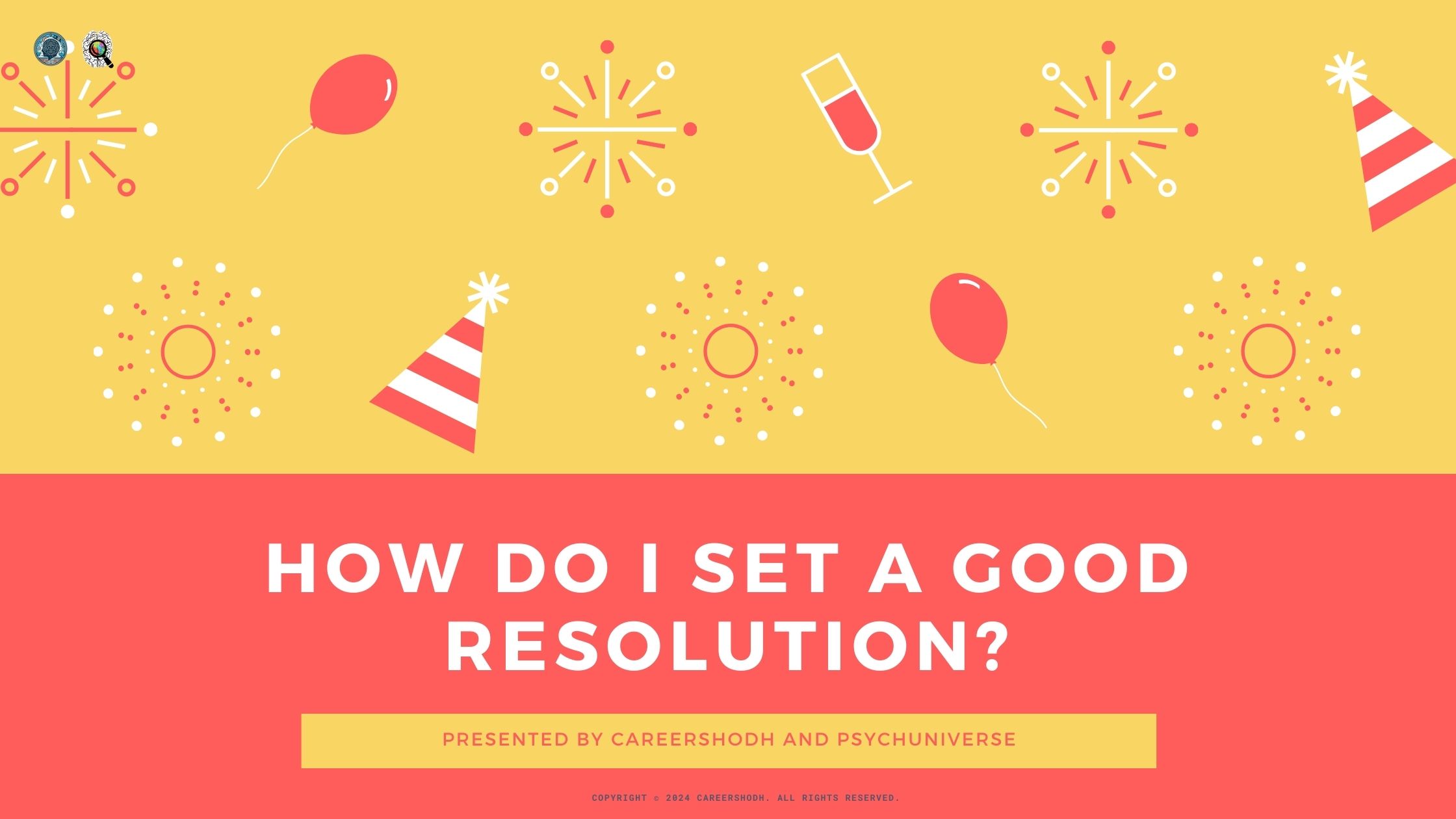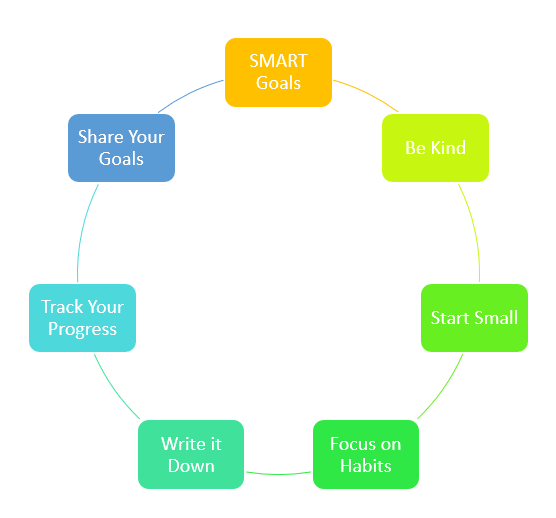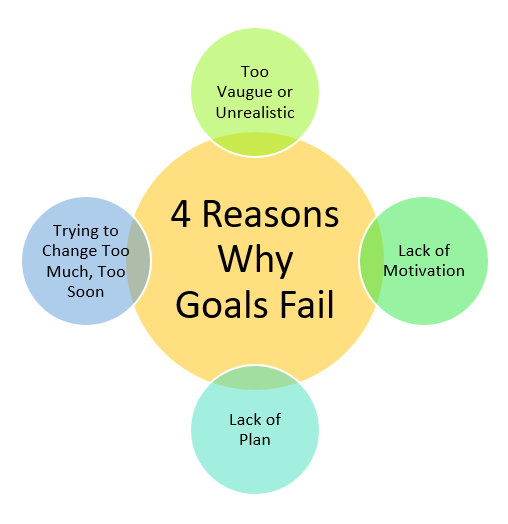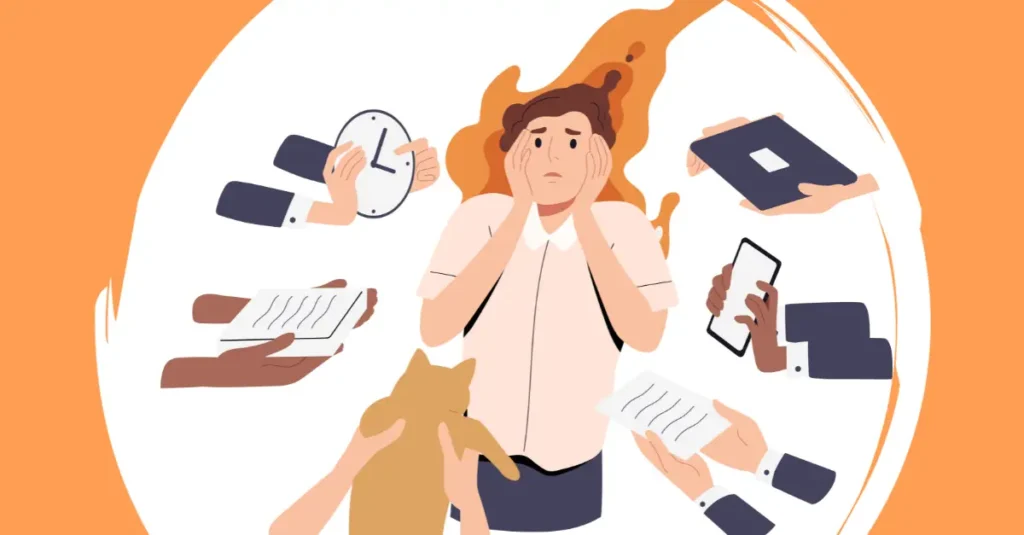The beginning of a new year marks a fresh chapter—a clean slate for many. Every year, millions of people all over the world set their New Year Resolutions, hoping to improve their lives in some way.
Whether it’s about getting fit, saving money, or learning a new skill; these resolutions reflect our desire to grow, change, and become the best versions of ourselves. Yet, as inspiring as it sounds, how many times have we found ourselves abandoning these goals halfway through February? Don’t worry—you’re not alone!

Why Do We Set New Year Resolutions?
Humans love fresh beginnings. The new year symbolizes a psychological reset, offering us the motivation to reflect on the past and plan for a brighter future. Researchers call this phenomenon the “Fresh Start Effect” (Dai, Milkman, & Riis, 2014). It’s the idea that certain dates—like the start of a week, month, or year—create mental divisions in our lives, making us feel detached from past failures and ready for a new beginning.
Setting resolutions serves a bigger purpose than just trying to hit the gym or quit smoking. Here are some key reasons why it matters:
- Resolutions Provide Clarity and Direction- Think of resolutions as a road map. Without a destination, we often wander aimlessly. Resolutions help us define where we want to go and what we want to achieve. They give life direction and purpose, turning vague aspirations into tangible goals.
- They Motivate Personal Growth- Whether you want to read more books, eat healthier, or improve relationships, resolutions are an opportunity to grow. Personal growth is vital for self-esteem, happiness, and life satisfaction.
- They Promote Accountability- When you commit to a resolution, it feels like you’re making a promise to yourself. Writing them down, sharing them with others, or tracking your progress can help hold you accountable and encourage you to follow through.
Why Do Resolutions Fail?
Let’s be honest—we’ve all been guilty of setting grand resolutions only to see them fizzle out by mid-January. According to a study by the University of Scranton, only 8% of people actually achieve their New Year resolutions (Norcross et al., 2002). Why does this happen?
- Goals Are Too Vague or Unrealistic- A resolution like “I want to get fit” is too broad. Without specifics, it’s hard to take action or measure progress. Similarly, setting goals that are unrealistic, such as “I’ll lose 50 pounds in a month,” sets you up for failure.
- Lack of a Plan- Goals without a clear plan are merely wishes. Most people skip the planning process, failing to set actionable steps for achieving their resolutions.
- Losing Motivation- The initial excitement of New Year resolutions often fades quickly. Life gets busy, challenges arise, and motivation dwindles, leaving goals forgotten.
- Trying to Change Too Much at OnceOverloading yourself with too many goals at the same time can be overwhelming. Change requires focus and consistency, which becomes harder when you’re juggling multiple goals.
How to Set Good New Year Resolutions (and Stick to Them!)
The good news is that you can set resolutions that stick! It’s all about creating well-defined goals, building habits, and being kind to yourself along the way. Here are practical strategies to help you succeed-

1. SMART Goals- The SMART framework is a proven method for setting effective goals-
- S – Specific– Be clear and precise about what you want to achieve.
- M – Measurable- Include metrics or indicators to track your progress.
- A – Achievable– Set goals that are realistic given your current circumstances.
- R – Relevant- Focus on goals that align with your priorities and values.
- T – Time-Bound– Set a deadline to stay focused and motivated.

2. Start Small and Build Momentum- You don’t have to change your entire life overnight! Break big goals into smaller, manageable steps. Small wins create momentum, boost confidence, and help you stay on track.
For instance, if you want to read 50 books in a year, start with a goal of reading one book per month. Once you build the habit, you can gradually increase the pace.
3. Focus on Habits, Not Just Outcomes- While it’s great to set ambitious goals, it’s the small daily habits that create lasting change. James Clear, the author of Atomic Habits, emphasizes the power of building habits through consistent effort. Focus on creating routines that support your goals.
Example: Instead of aiming to “lose 20 pounds,” focus on habits like “meal prepping every Sunday” or “walking 10,000 steps a day.” These habits will naturally lead you to your goal.
4. Write Down Your Resolutions- Putting your goals on paper makes them feel more real. Studies show that writing down goals increases the likelihood of achieving them. Keep your resolutions visible—on your fridge, desk, or as a phone wallpaper—to serve as a daily reminder.
5. Track Your Progress- Monitoring your progress helps you stay motivated and identify areas for improvement. Use tools like journals, apps, or calendars to track how far you’ve come.
Celebrate small milestones along the way—they’re proof that you’re making progress!
6. Share Your Goals- Sharing your resolutions with friends or family can boost accountability. When others know your goals, you’re more likely to stick to them. Plus, having a support system can provide encouragement when the going gets tough.
7. Be Kind to Yourself- Change is hard, and setbacks are part of the process. Don’t beat yourself up if you miss a workout or have a bad week. Instead, practice self-compassion and remind yourself that progress, not perfection, is the goal.
Why Do Resolutions Fail?
Let’s be honest—we’ve all been guilty of setting grand resolutions only to see them fizzle out by mid-January. According to a study by the University of cranton, only 8% of people actually achieve their New Year resolutions (Norcross et al., 2002). Why does this happen?
- Goals Are Too Vague or Unrealistic- A resolution like “I want to get fit” is too broad. Without specifics, it’s hard to take action or measure progress. Similarly, setting goals that are unrealistic, such as “I’ll lose 50 pounds in a month,” sets you up for failure.
- Lack of a Plan- Goals without a clear plan are merely wishes. Most people skip the planning process, failing to set actionable steps for achieving their resolutions.
- Losing Motivation- The initial excitement of New Year resolutions often fades quickly. Life gets busy, challenges arise, and motivation dwindles, leaving goals forgotten.
- Trying to Change Too Much at Once- Overloading yourself with too many goals at the same time can be overwhelming. Change requires focus and consistency, which becomes harder when you’re juggling multiple goals.

Fun Ideas for Resolutions to Inspire You
Need a little inspiration? Here are some fun, achievable, and creative New Year resolution ideas for 2024 (remember to customize them to your lifestyle!)-
- Learn a New Skill- Whether it’s cooking, painting, or playing an instrument, picking up a new skill is both fun and rewarding.
- Read More Books- Aim to read a book every month or join a local book club.
- Practice Gratitude- Start a gratitude journal and write down three things you’re thankful for every day.
- Declutter Your Life- Organize your home, workspace, and digital life—it’s amazing what a tidy environment can do for your mind.
- Save Money- Create a budget and set small saving goals like putting aside $10 a week.
- Try a Fitness Challenge- Commit to a 30-day yoga challenge, Couch to 5K, or a dance workout series.
- Unplug from Technology- Dedicate one day a week to unplug from social media and spend quality time offline.
- Explore New Places- Travel doesn’t have to be expensive! Explore local parks, museums, or hidden gems in your town.
- Develop a Morning Routine- Start your day with habits like journaling, meditating, or exercising to set a positive tone.
- Connect More with Loved Ones- Schedule regular phone calls, dinners, or game nights with family and friends.
It’s About Progress, Not Perfection
New Year resolutions are a chance to envision the life you want and take meaningful steps to get there. While it’s easy to feel discouraged when you slip up, remember that success is built on consistency, not perfection.
If you fall off track, simply start again. The important thing is to keep moving forward, one small step at a time. As Confucius once said, “It does not matter how slowly you go as long as you do not stop.”
So, this year, let’s set resolutions that inspire us, challenge us, and make life a little more joyful. Whether it’s big or small, every step toward growth matters. Cheers to a healthier, happier, and more intentional year ahead!
References
Dai, H., Milkman, K. L., & Riis, J. (2014). The Fresh Start Effect: Temporal Landmarks Motivate Aspirational Behavior. Management Science, 60(10).
Norcross, J. C., Mrykalo, M. S., & Blagys, M. D. (2002). Auld Lang Syne: Success predictors, change processes, and self-reported outcomes of New Year’s resolvers and nonresolvers. Journal of Clinical Psychology, 58(4).
Clear, J. (2018). Atomic Habits: An Easy & Proven Way to Build Good Habits & Break Bad Ones.
Subscribe to PsychUniverse
Get the latest updates and insights.
Join 3,045 other subscribers!
Niwlikar, B. A. (2024, December 17). 7 Ways to Set Good New Year Resolutions 2025. PsychUniverse. https://psychuniverse.com/new-year-resolution/




Pingback: Learning the Art of Letting Go and 3 Important Reasons Why we Hold On - PsychUniverse
Pingback: Learn the 10000 Hours Rule and 4 Ways to Master Any Skill - PsychUniverse
Pingback: Psychology of Discipline : Unlocking the Pathway to Exceptional Success - PsychUniverse